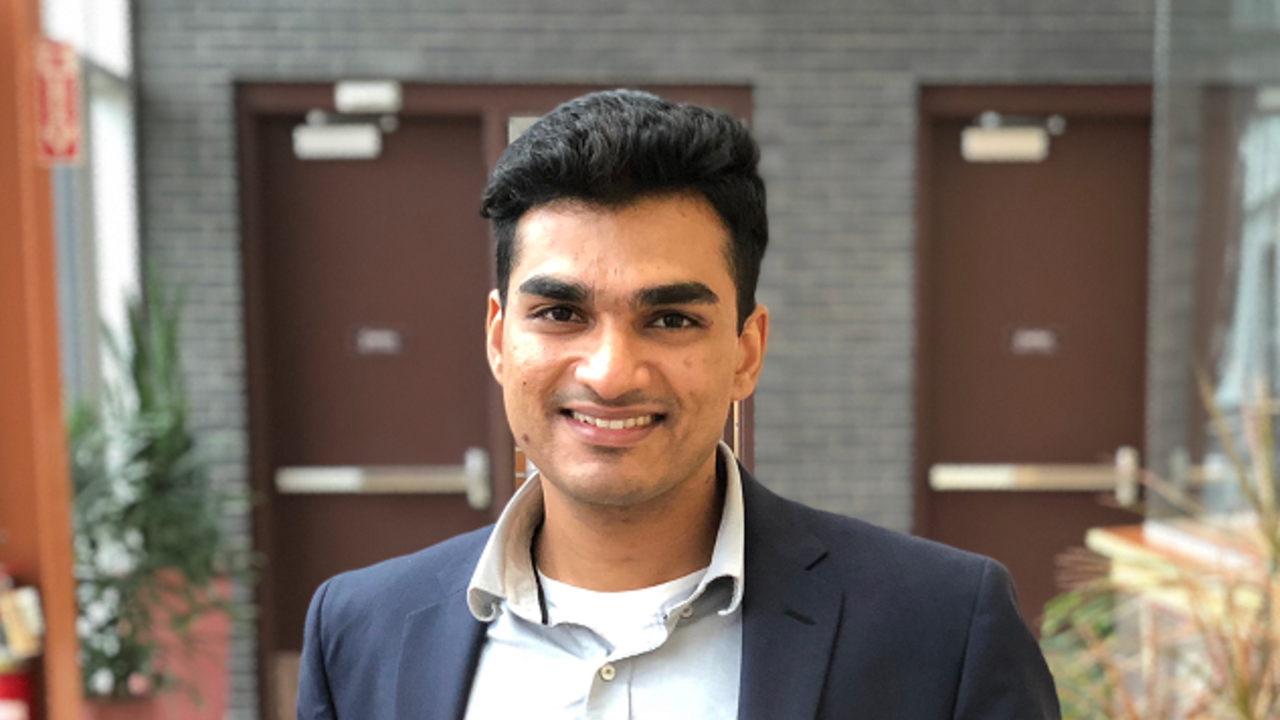Interview with Arvind Karthikeyan – An Emerging Engineer

The academic side of electronics contributes to industry in substantial ways. Research universities provide their students opportunities to solve problems. Often times this problem-solving research is conducted in concert with companies in our industry. This collaboration between the industry and academic institutions is a proven way to drive innovation in the industry.
One such a researcher is Arvind Karthikeyan, a PhD student and Graduate Research Assistant at Auburn University. He is currently investigating the influence of high reliability solder paste alloys on BGA solder joint reliability in harsh environments. The project will be part of his dissertation work and is being conducted at Universal Instruments, New York.
Charlene connected with Arvind and asked him a few questions about his academic pursuits, his career aspirations, and personal journey within the electronics manufacturing industry.
Charlene: “Why do you love about your profession and the industry in general?”
Arvind: “The research work is not monotonous. Each day comes with a new and different learning process. In spite of having a surfeit of knowledge in the industry, there is a huge potential for growth.”
Charlene: “Why did you decide to become a PhD student?”
Arvind: “I’m curious to explore more aspects of the field, especially Materials. I deemed it was necessary to spend more time studying and researching. Hence, I decided to transition from a master’s to PhD degree.”
Charlene: “What was the highlight of your career thus far?”
Arvind: “Quite a lot. However, being selected as one of the Emerging Engineers has been the icing on the cake.”
Charlene: “What are your goals in terms of engineering today?”
Arvind: “My short-term goal is to explore all aspects of engineering – mechatronics, materials, reliability.”
Charlene: “What do you look forward to in the future?”
Arvind: “Working on Flexible electronics and 2D materials. I expect challenging roles and projects to learn and contribute. Although not a Materials Engineer, I would like to work on 2D materials packaging and atomic layer deposition.”
Charlene: “How would you describe the term “Engineering””
Arvind: “Problem-solving. I love failures and problems. Makes me think critically and use my intelligence to determine the root cause of the problem. Later, find a solution to mitigate the problem. Comes with experience and teamwork.”
Charlene: “You are one of IPC’s Emerging Engineers. Why did you decide to get involved and what are the benefits?”
Arvind: “The primary reason why I chose to apply to Emerging Engineer program is to have an opportunity to take part in APEX conferences and present my research work free of cost. APEX is one of the largest exhibitions/conferences in North America and I was fortunate to witness it last time. There are multiple networking opportunities to help me land a job in the future. Also, the aspect of involving and contributing to standards development in the early stage of my career is immensely encouraging.
Charlene: “What aspects do you love about your job?”
Arvind: “I love the fact that the job is challenging and has changed my thought process. Opportunity to learn continuously and be acknowledged for new research findings. Working on multiple projects simultaneously that are different from each other.”
Charlene: “What makes the industry exciting?”
Arvind: “Rapidly evolving and room for engineers from all streams to contribute. There are plenty of projects pertinent to various applications, making way for wide variety of choices.”
Charlene: “What suggestions do you have for students to consider when exploring different career paths?”
Arvind: “The first step is to self-evaluate your interests, strengths, skillsets and personality. The next step is to identify and filter the careers paths that fit your traits. While performing this analysis, try not to eliminate other professions until basic research is done. Additionally, internship opportunities could be explored to know better about the position.”
Charlene: “What advice do you have for young professionals, especially students in finding a job?”
Arvind: Well, I’m not there yet. However, I have been advised to network with professionals while applying to a job rather than randomly applying through LinkedIn or company website. More effective.”
Charlene: ‘What can a student do to prepare for that interview?”
Arvind: “It is imperative to acquire maximum information regarding the organization and the job profile. Additional information regarding the organization/job/interview process could be gathered by establishing contact with staff employed in the organization and concerned department. Different approaches of interview preparation for HR and technical personnel would be appreciated. It is also encouraged to collect information regarding the interviewer.”
Charlene: “Where do you think are the emerging technologies over the next 5 years?”
Arvind: “As far as technologies are concerned, Flexible electronics, Biometrics and E-textiles have ample potential for growth.”
Charlene: “What do you currently do to change the world of engineering today?”
Arvind: “Evaluating alternate solder paste alloys to SAC305 for harsh environment applications. The project involves various phases starting with investigating the reliability of components subjected to non-aging and isothermal aging conditions. After the experimental method, the stresses on the solder joints during vibration testing will be determined by FEA.”
Charlene: “Thank you so much for your time. We wish you all the best with your studies!”
Arvind: “Thank you for the opportunity, Charlene.”


